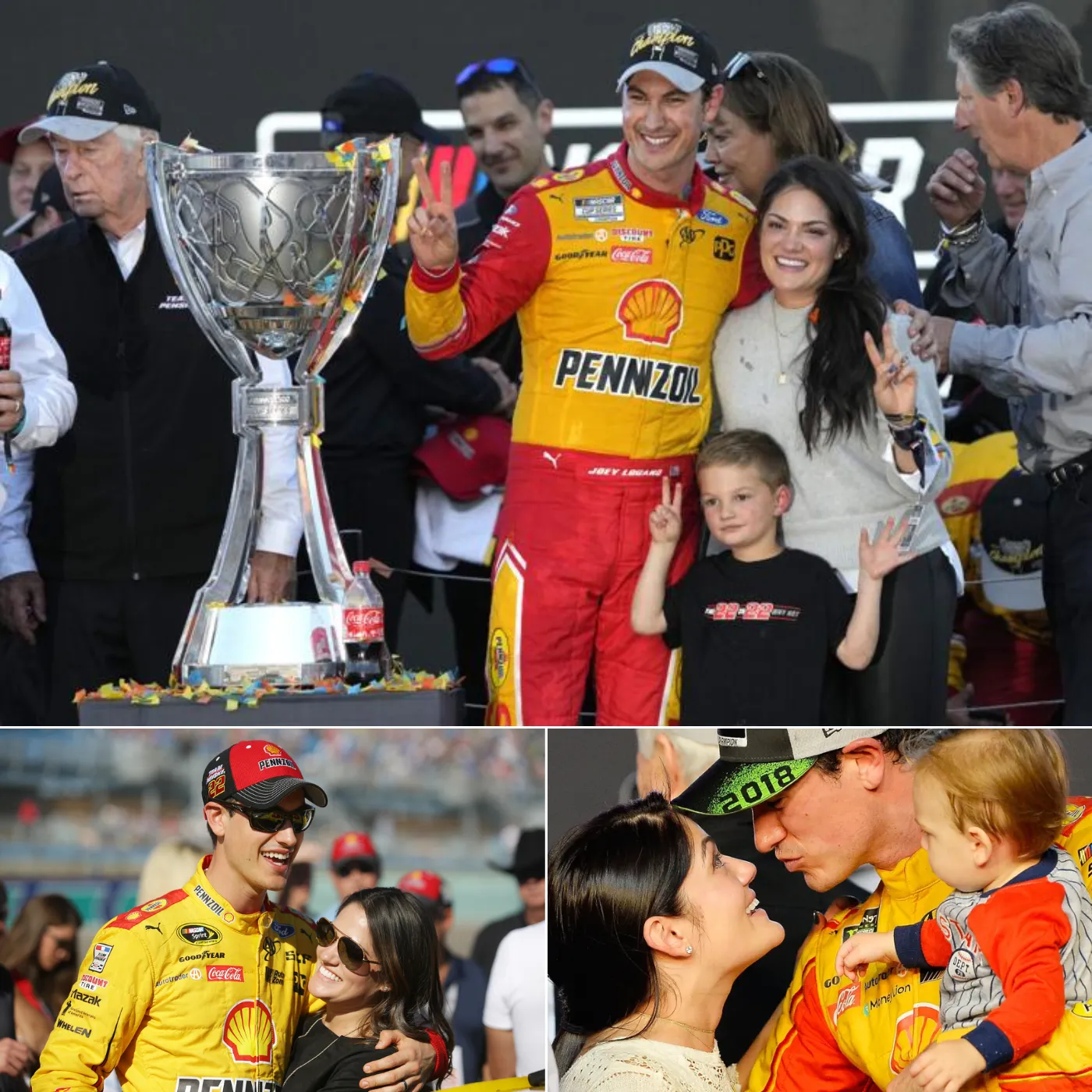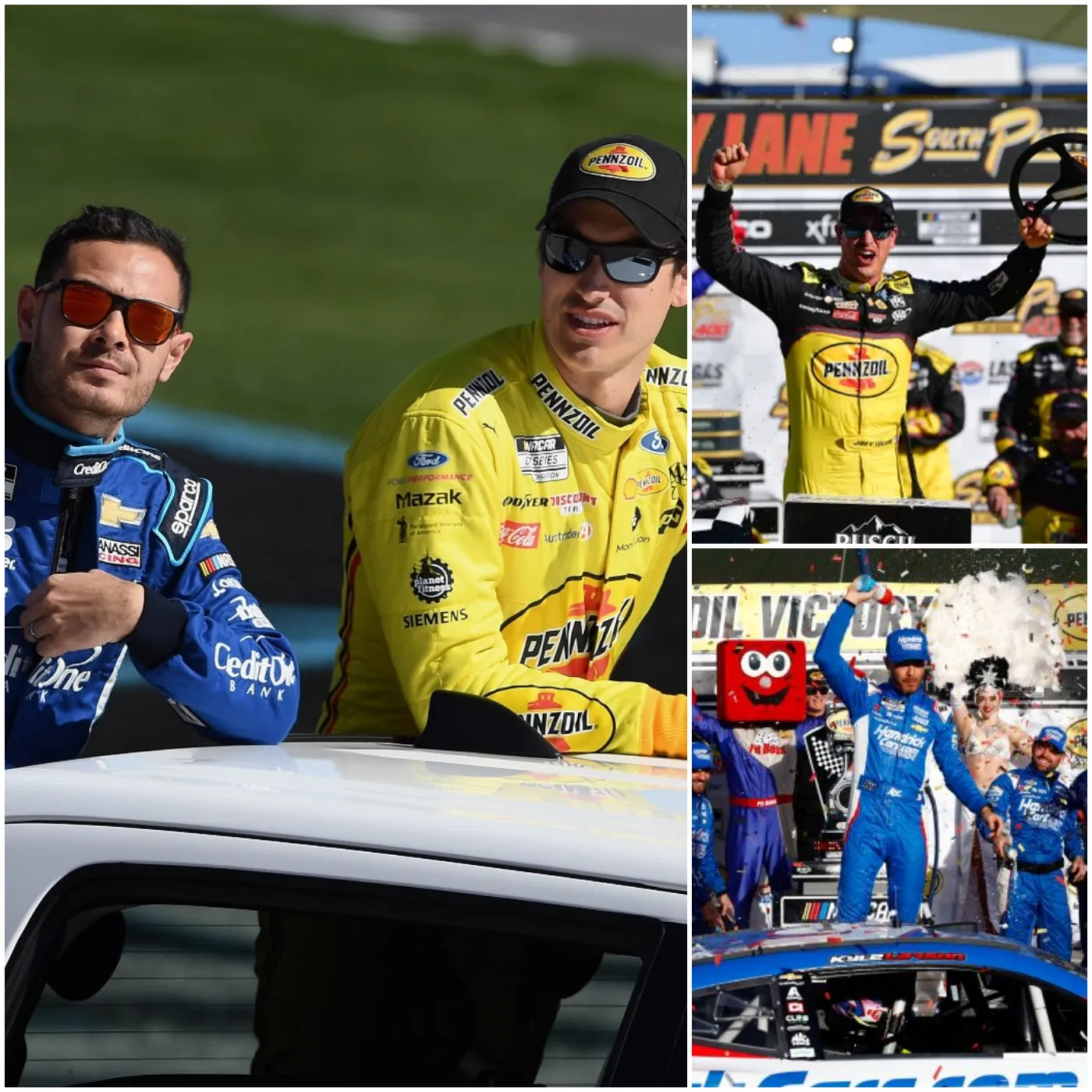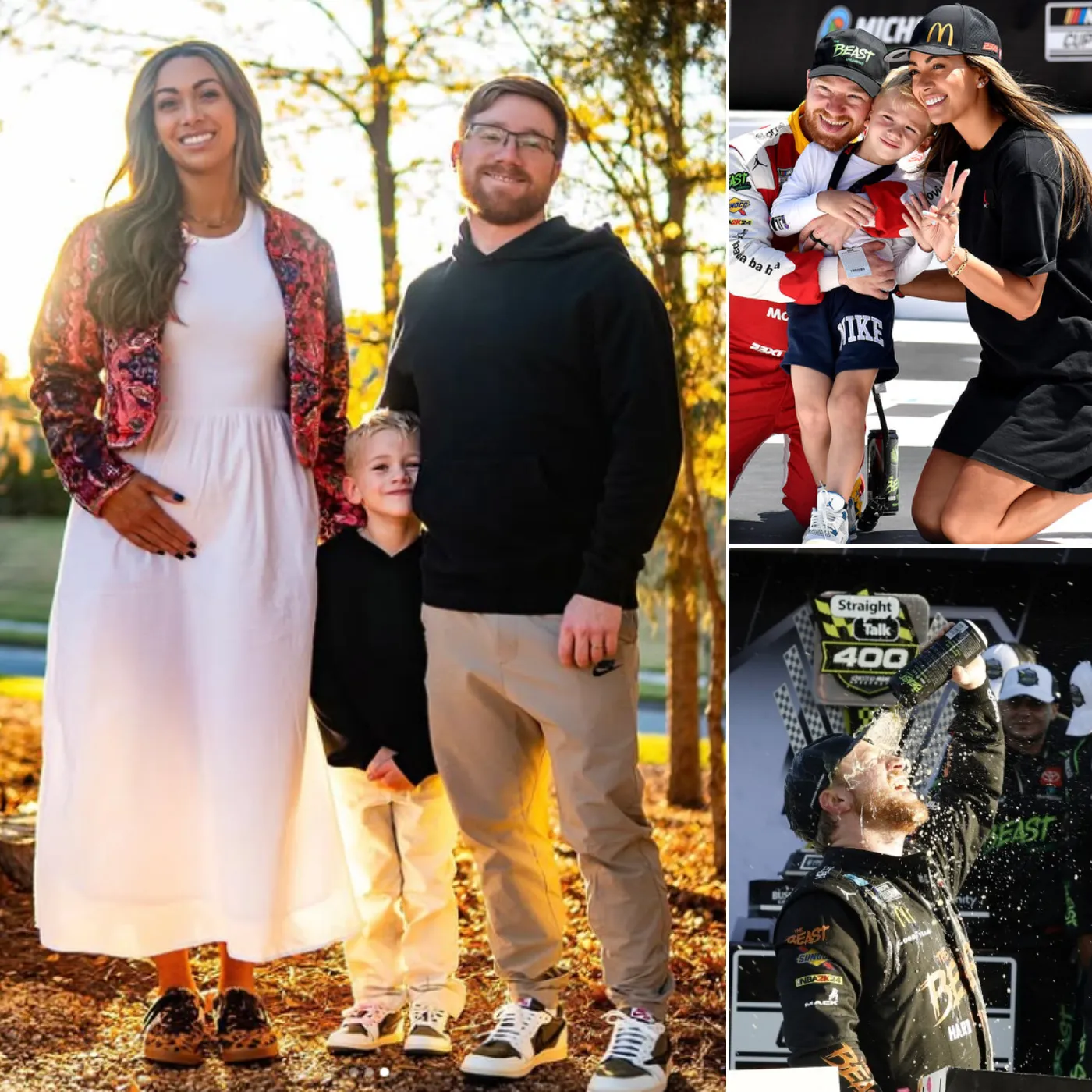NASCAR fans around the world were stunned when Kyle Busch made the bold decision to leave Joe Gibbs Racing (JGR), the powerhouse team where he had enjoyed the peak of his career. But what followed was even more shocking: the emergence of Kyle Busch’s deep resentment for DEI (Dale Earnhardt, Inc.), a team with a history of being one of NASCAR’s most iconic brands. Busch’s emotions are anything but neutral, and the depth of his hatred for DEI is not just a passing issue—it’s a brewing storm that could shake the very core of NASCAR itself.
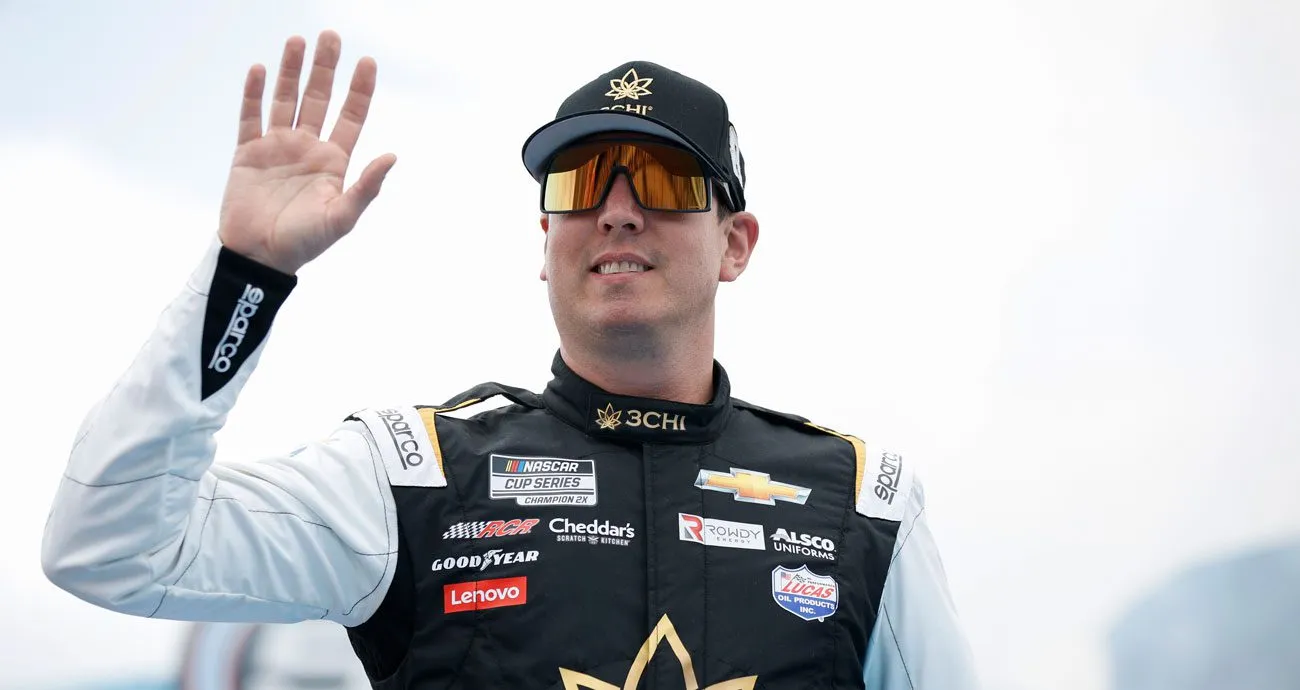
In a sport defined by fierce rivalries and moments of high drama, this latest development has left the NASCAR community divided, curious, and increasingly suspicious. What exactly is going on behind the scenes? Why does Busch harbor such intense animosity for a team that’s been out of the spotlight for years? And what does it mean for the future of NASCAR’s power dynamics?
The Unthinkable Departure: Kyle Busch’s Bold Move
When Kyle Busch made his controversial exit from Joe Gibbs Racing, many fans and insiders were left scratching their heads. After all, JGR was a team where Busch had achieved multiple championships, countless wins, and developed a relationship with his teammates and crew. But suddenly, he walked away.
It wasn’t just a matter of a driver changing teams—it was a symbolic moment in NASCAR. Busch’s exit from JGR didn’t just mark the end of an era for the team—it hinted at something much deeper at play. There were rumors, whispers in the paddock, and behind-the-scenes discussions, all pointing to an ongoing fracture between Busch and the team. While the official narrative was that it was a matter of career progression, many believed there was something more—personal animosities, unresolved conflicts, and business disputes that had been bubbling under the surface for years.
As the dust settled on Busch’s departure, attention quickly turned to what would happen next. The next step in his career was one that no one saw coming. Busch didn’t just leave JGR and sign with another powerhouse team—he appeared to set his sights on something even more dangerous: a battle with DEI.
Kyle Busch’s Hatred for DEI: The True Story Behind the Rivalry
To understand the depth of Kyle Busch’s hatred for DEI, one must look at the history of the organization and its relationship with Busch’s career. Dale Earnhardt, Inc., the team founded by the legendary Dale Earnhardt Sr., was once an unstoppable force in NASCAR. But following Earnhardt’s tragic death in 2001, the team struggled to maintain the same level of dominance, even as it was led by his widow, Teresa Earnhardt.
Busch, who joined DEI for a brief stint early in his career, had an experience that would set the stage for a deep-seated animosity between him and the organization. Internal politics, lack of support, and unmet expectations played a significant role in Busch’s decision to leave the team. He was often frustrated with the way DEI was run under Teresa Earnhardt’s leadership, particularly with the way resources and attention were divided among drivers and how decisions were made behind closed doors.
Busch’s departure from DEI wasn’t just about performance or contracts; it was a clash of personalities that left scars that would never fully heal. Even as DEI struggled in the years that followed, Busch’s resentment toward the team never faded. In fact, many insiders believe that his decision to leave JGR had less to do with JGR itself and more to do with Busch’s desire to take down DEI—an organization he once felt held him back from his true potential.
The Dangers of Busch’s Hatred: How This Affects NASCAR’s Future
Now, with Kyle Busch’s hatred for DEI becoming a major talking point in the racing world, the big question is: How will this affect NASCAR’s future? Busch is not the kind of driver to hold back his feelings, and as the war of words between him and DEI heats up, so does the potential for broader consequences.
For one, Busch’s comments about DEI have already stirred up old rivalries and brought up fresh wounds. Fans have begun to revisit some of NASCAR’s most controversial moments in the team’s history, including the infamous struggles of DEI to maintain its dominance post-Earnhardt Sr. These revelations about Busch’s personal experience with the team, combined with his outspoken remarks, have reignited discussions about DEI’s lasting influence on the sport.
What’s more, Busch’s comments could reignite old feuds with members of the Earnhardt family. Despite DEI’s decline in recent years, its legacy still looms large in NASCAR, and any negative publicity surrounding it could prompt a renewed wave of fan backlash, both for Busch and the Earnhardt family.
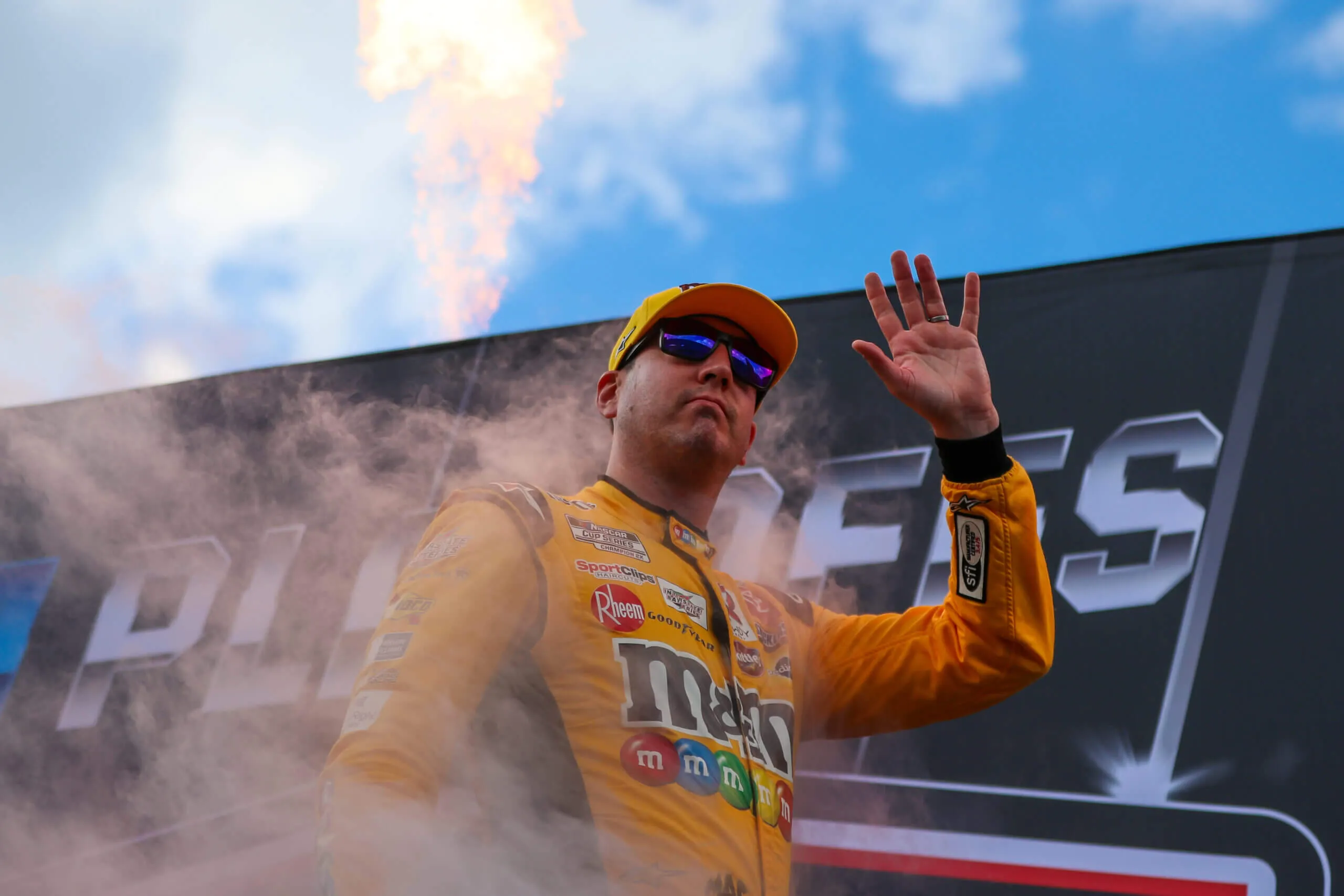
It’s not just about the fans, though; the business side of NASCAR could also feel the tremors. Sponsors, team owners, and stakeholders who have invested heavily in the sport are already watching this situation unfold. If Busch’s animosity with DEI escalates to a full-blown public conflict, it could impact sponsorship deals, endorsements, and media coverage. The last thing NASCAR needs is another high-profile scandal, especially one rooted in the legacy of a team that was once a symbol of everything good in the sport.
The Bigger Picture: What Does Kyle Busch’s Hatred Mean for NASCAR?
While much of the focus has been on the Kyle Busch vs. DEI drama, the bigger question remains: What does this all mean for NASCAR’s future? The sport is at a crossroads, with traditional teams like JGR and DEI facing challenges in a world that’s changing rapidly. New teams are emerging, and new rivalries are forming. But the old guard, like DEI, still carries a tremendous amount of influence, despite its decline.
Busch’s outspokenness and his desire to tear down DEI could very well serve as a catalyst for a new wave of rivalry-driven narratives in NASCAR. Will this embolden other drivers to publicly go after established teams or organizations? Or will this lead to a greater division between the old and new generations of NASCAR stars?
What is clear is that Busch’s hatred for DEI could have ramifications far beyond just his own career. It could spark a larger debate about the future of NASCAR—about its past, its present, and its legacy. Busch’s fight against DEI may be personal, but the stakes are larger than just two men. This is about power, influence, and the evolving identity of NASCAR itself.
